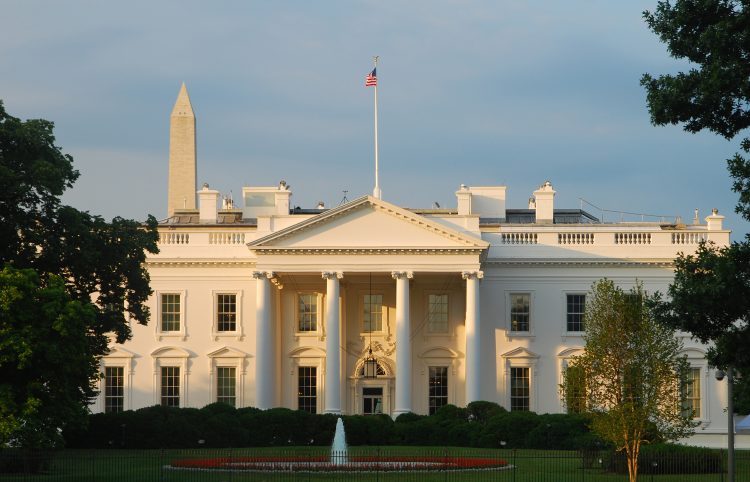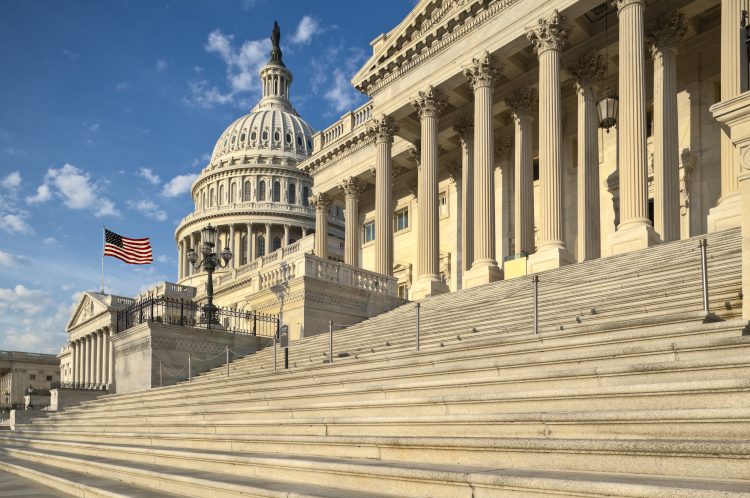This week on Facing the Future, we check back in with professor Adam Stulberg, the Sam Nunn Chair in the Sam Nunn School of International Affairs at Georgia Tech University. Professor Stulberg has expertise in Russian and Eurasian Affairs, international security, nuclear proliferation, and the politics of energy and natural resources. So in other words, the perfect scholar to take a look at Russia’s brutal invasion of Ukraine one year in.
The war is relevant to our usual discussion about the federal budget and the economy because it has already had major impacts on both, and may continue to do so for the foreseeable future. So we wanted to know from professor Stulberg: where are we now, what has surprised him about the past year, and where are we going? Concord Coalition communications director Av Harris and national field director Phil Smith joined me for that conversation.
Later in the program, Concord’s policy director Tori Gorman and chief economist Steve Robinson joined me for instant analysis of President Biden’s State of the Union address this week. I shared my detailed reaction to one particular part of the President’s speech in a separate blog post entitled: Pressing the Snooze Button on Entitlement Reform.
It is safe to say as we approach the one year anniversary of the war in Ukraine that it has not gone how any of the experts thought or expected it would. Professor Stulberg pointed out that chief among the many surprises the conflict has seen include the resilience and resolve of the Ukrainian military, the disastrously incompetent performance of Russian forces, and how strongly the alliance of the United States and NATO allies has held together to repel Russian aggression. A year ago on our program, Professor Stulberg said the end game of this conflict would be the answer to the question of how much of a victory Russia would be willing to accept, plus similar questions for Ukraine, the U.S. and its allies. Now, he says that calculus has changed.
“A year in, we’re getting close to, I would argue for Russia – and this is where I would argue is a danger point for us – is when the question becomes how much are they willing to lose?” said Stulberg. “Putin was opportunistic. He saw Ukraine weak, he saw this as an asymmetry of interests, he didn’t think Europe and the U.S. would stand firm in providing the supplies that were needed, that this would be kind of a walk in the Ukrainian park. He wasn’t really willing to pay huge costs because he didn’t think he’d have to. But now, they’re in a war of attrition, and he can’t just cut and run. The question is how much is he willing to lose? If it’s a little bit, ok, but this is where his calculation interacts with Ukraine’s and our calculation. The appetites for the West and the Ukrainians have gotten bigger than at the beginning of the conflict because of Russia’s performance. But if Ukraine is committed and dead set on evicting Russia from all of their territory including those Russia controlled prior to 2022, that may be where Putin’s loss and Ukraine’s gain may come into direct conflict with each other. And the question is where are we going to be on that? How much are we going to temper the appetite for victory on the part of the Ukrainians?”
The other major shift that Russia’s invasion of Ukraine has brought about is serious movement by European countries to invest in renewable energy and cut their dependence on Russian oil and natural gas. Professor Stulberg says the war has accelerated the loss of relevance of energy as a weapon Moscow thought it could use to impose its imperialistic ambitions on Europe.
“Most of the attention on Russia’s use of energy as a weapon was really focusing on the delivery,” said Stulberg. “Pipelines in particular were a big thing, and using those pipelines to turn the spigot on and off to affect both the volume and price. One of the interesting things going into this part of the conflict was that really the energy competition and weaponization really had to do with storage facilities, and Europe racing to fill theirs prior to the meat of winter in 2022. What caught the Russians by surprise was how quickly and effectively the Eurpoeans did that, and how much they were willing to either reduce their consumption on the margins or pay a higher price and diversify some of their sources. I think energy for a while now has been a waning asset for Russia in terms of its geostrategic influence, and as much as the energy transition in Europe towards renewables is really gathering steam, that’s a problem for Russia.”
However, Stulberg cautions all of us not to write Russia off as the war in Ukraine drags towards its inevitable conclusion. Russia will still be an important player with a population of 150 million people, nuclear weapons, and deep natural resource assets the U.S. and Europe will need to fully integrate into future energy and geopolitical planning.
Turning to President Biden’s State of the Union Address earlier this week, much has been made of the heckling of the president by a small group of House Republicans and Biden trading a few barbs of his own. But according to Concord policy director Tori Gorman, all that banter masks the big elephant in the room: neither party has a credible plan to put the federal budget on a more sustainable path by reducing deficits or reforming our entitlement programs.
“Both sides are making promises they just can’t keep,” said Gorman. “The President made a commitment that his budget would reduce future deficits by $2 trillion, and then went on a spree about how he wants to pass paid family and medical leave, paid childcare, restore the CARES Act Child tax credit, increase affordable housing, provide more financial support for home caregivers, make education more affordable, universal pre-K, increase Pell Grants, free community college for two years. On and on. A laundry list. He did talk about some revenue raisers, but I think we all know that there is no appetite for tax increases in either party. And on the flip side, Republicans are promising to put forward a balanced budget in the 10th year [of the budget window] without touching entitlements and without raising taxes. I just don’t think either one is credible.”
Hear more on Facing the Future. I host the program each week on WKXL in Concord N.H., and it is also available via podcast. Join our guests as we discuss issues relating to national fiscal policy with budget experts, industry leaders, and elected officials. Past broadcasts are available here. You can subscribe to the podcast on Spotify, Pandora, iTunes, Google Podcasts, Stitcher, or with an RSS feed. Follow Facing the Future on Facebook, and watch videos from past episodes on The Concord Coalition YouTube channel.
Continue Reading










